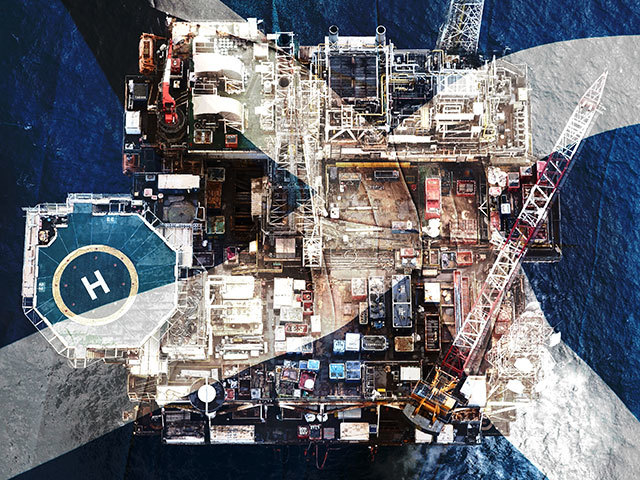
A leading petroleum geology academic has rubbished claims that offshore fracking represents a potential £600billion “black gold bonanza” for Scotland.
Professor David Macdonald, chair in geology and petroleum geology at the University of Aberdeen, said a report by think tank N-56 was “very poor” and that the oil rich shale under the North Sea would be at least ten times more expensive to exploit than onshore wells, making removing the reserves uneconomical.
He added that much of the oil and gas, which N-56 analysts have claimed could almost double recoverable reserves in the North Sea to 45 billion barrels, has already been exploited in the last 40 years through conventional extraction.
The N-56 report compared the oil and gas in the Kimmeridge Clay, the major oil and gas source rock for the central and northern North Sea, with similar unconventional oil and gas fields in the US which Professor Macdonald said was “completely inappropriate”.
“An offshore well costs about ten times what an onshore well costs,” he added.
He pointed to the report’s own figures, which showed that while successful US fields such as Bakken and Eagleford had already seen hundreds of millions of barrels of oil and gas removed, the amount taken from the North Sea was estimated to be 50 billion barrels.
“They will have been depleted already by conventional oil production. The amount of oil expelled from the Kimmeridge is already two orders of magnitude above the Bakken and the Eagleford.
“It is bad science and bad economics.
“If we are at a stage of drilling for unconventional gas in the deepest part of the North Sea we are in real trouble.
“To make this pay, gas prices will have to have gone through the roof.”
But N-56 yesterday produced a range of experts who supported their report, including Professor Macdonald’s colleague, Professor John Howell, who is also a chairman in Geology & Petroleum Geology at University of Aberdeen.
He said: “We know that shale gas and more recently shale oil has revolutionised the US energy markets and is transforming their economy. We also know that the Kimmeridge Clay is a major oil-rich shale, which has generated most of the conventional oil in the North Sea. Its shale-oil potential is not in question.
“Once again we see how the ingenuity of the oil exploration community continues to add huge potential resources to the already proven reserves of the North Sea.”
Recommended for you

